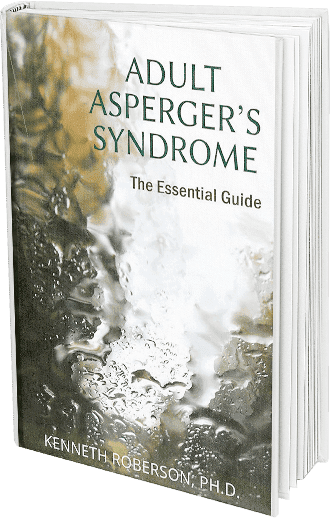
Although there is much more to be learned, research suggests that people with Autism Spectrum Disorder (ASD) have the same sexual interests and issues as people in the general population (Lawson, 2005; Henault, 2006). The bottom line is that adults with ASD are as interested in sex as everyone else.
But just as sex and intimacy can present major difficulties for neurotypical adults, adding Autism Spectrum Disorder to the mix creates additional complexities. The characteristics of Autism Spectrum Disorder in most cases affect one’s ability to create intimacy and to enjoy a satisfying sexual relationship.
Intimacy
Intimacy involves sharing emotions and intimate thoughts, as well as hopes, beliefs, physical affection, and sex. While sex is important in a relationship, it is not the only way to create intimacy.
Adults with Autism Spectrum Disorder tend to have a single focus, be inflexible, and need routines, all of which can make intimacy and a satisfying sexual relationship difficult. Listening and paying attention to their partners needs is not something that comes easily.
I often suggest to couples who come to me for help that they create a list of activities which each of them want in an intimate relationship, such as sending flowers, saying “I love you” each day, taking walks together, and setting aside time to listen to each other. I then advise both partners to discuss their list with each other and generate a second list of things they can each do to increase the intimacy between them. By taking one item on these lists and focusing on that one for a certain period of time, then a second one when the first is firmly established, couples often can create the conditions of intimacy that were lacking before.
Physical Affection
Tony Atwood, (2008), points out that people with Autism Spectrum Disorder often do not understand why it is important for neurotypical people to express love and affection. One reason is that a common characteristic of Autism is extreme sensitivity to touch. When a hug is experienced as an uncomfortable squeeze or touching feels painful, the ability of someone with Autism Spectrum Disorder to give and receive physical affection is greatly diminished.
Working with your partner to figure out what kinds of touch can be tolerated is a crucial step in allowing physical affection to develop. Letting your partner know when you need or want to be touched can overcome the difficulty your partner has in recognizing the importance of affection. Understanding that your partner’s discomfort with touch is an outcome of Autism can provide the emotional space that allows affection to eventually develop.
Improving Your Sexual Relationship
Consider the following exercise. Together with your partner make a list of the things that your partner does sexually that you like. Make a second list of things you would like your partner to do or try sexually. Make a third list of things that you do not particularly enjoy sexually. Ask your partner to generate similar lists. Then sit down together and share the items on your lists. Ask each other whether the items makes sense, whether you can agree on any, and how you might go about implementing the things that each of you want and don’t want.
It’s important to be specific about what you hope for and what you don’t like. I know this is often difficult for couples but the more specific you can be the less likely that misunderstandings will develop and/or continue. It’s also important to be sensitive to feeling pressured and to pressure your partner. No one likes the idea that they have to do what someone, especially someone they care about, wants them to do. Nor is it very encouraging to know that not doing what your partner wants will get you in trouble.
Remember that compromise in one’s sexual relationship, just like compromising in other areas, is key to a successful relationship.
Although you can work alone to improve your own sexual responsiveness or sensitivity to your partner, your physical and sexual intimacy benefits most when you can discuss and work them out together. As is the case in other areas of your relationship tolerance, trust, good communication, and commitment will go a long way in achieving the sexual connection and intimacy you both desire.




